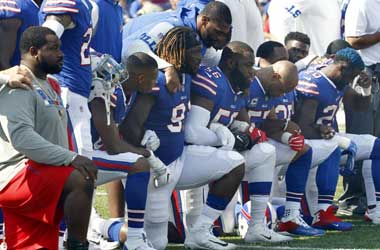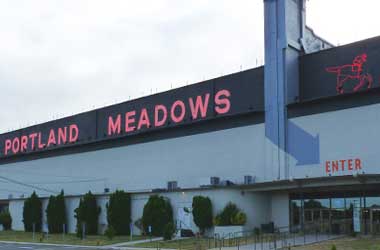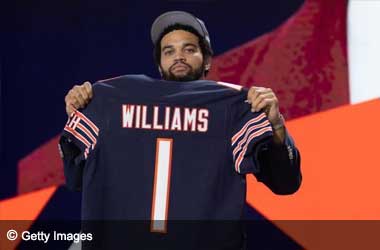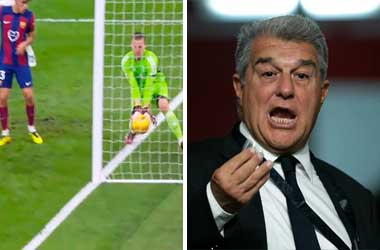 The Associated Press decided to conduct a survey to find out who was the best NHL player in the world. Thirty of the top NHL players were quizzed and were asked to pick their best player in the world and top choices were between Connor McDavid from the Edmonton Oilers and Sidney Crosby from the Pittsburgh Penguins.
The Associated Press decided to conduct a survey to find out who was the best NHL player in the world. Thirty of the top NHL players were quizzed and were asked to pick their best player in the world and top choices were between Connor McDavid from the Edmonton Oilers and Sidney Crosby from the Pittsburgh Penguins.
Crosby is 30 years old and has been around a lot longer than McDavid who is just 20 years old. Crosby has a lot more accomplishments in his career till date including leading his team the Penguins to back-to- back Stanley Cup titles in 2016 and 2017 – a feat that has not been accomplished since the salary-cap era. He also led from the front and scored the highest number of goals last season and won the prestigious Conn Smythe Trophy as playoff MVP.
NHL
Connor McDavid is easily the hottest prospect in the NHL and was responsible for reviving the fortunes of the Edmonton Oilers and leading them to the playoffs last season. The 20 year old was awarded the Hart Trophy and Ted Lindsay Award as MVP. He made headlines in June when he became the highest paid NHL player in the world after signing an 8 year extension contract with the Oilers for $100 million.
Some of the top NHL players who were part of the survey included Erik Karlsson from the Ottawa Senators, Dylan Larkin from the Detroit Red Wings, Jonathan Huberdeau from the Florida Panthers, Jordan Eberle from the New York Islands, Chris Tanev from the Vancouver Canucks and T.J. Oshie from the Washington Capitals.
Two out of the thirty players surveyed were unable to pick just one name as they believed there were a lot of good players out there. The results of the survey showed that the majority of players believed that Sidney Crosby was the best player in the world as he received a total of 21 votes with McDavid receiving just 6. Erik Karlsson who plays as a defenceman for the Ottawa Senators received one vote. It is hard to argue with that assessment given the fact that Sid Crosby also has two Olympic gold medals and 3 Stanley Cup rings.
In a statement, Kevin Shattenkirk from the New York Rangers said
He's proven that in big-time games in the last two years especially that he can perform. I know a lot of people love Connor McDavid, but I think Sid is at the peak of his career and someone who has lived up to every expectation that he's been given.
 President Donald Trump and NFL players continue to engage in a heated exchange which started last weekend after President Trump asked NFL franchises to fire players who disrespected the National Anthem by bowing their knees while it was being played. The President asked the NFL to fire ‘the sons of bitches’ who had no respect for their country.
President Donald Trump and NFL players continue to engage in a heated exchange which started last weekend after President Trump asked NFL franchises to fire players who disrespected the National Anthem by bowing their knees while it was being played. The President asked the NFL to fire ‘the sons of bitches’ who had no respect for their country.
Hundreds of NFL players have protested since then via social media as well as continuing to sit or go down on their knees while the National Anthem was played in a show of defiance.
NFL players started adopting the practice of going down on one knee during the National Anthem to protect policy brutality against African Americans.
Washington Post
While NFL players took to social media to criticize President Trump and expressed their disappointment in having their President label them with derogatory names, American media also went after the President for focusing on issues like sports when there were more pressing issues at hand such as North Korea threatening to hit America with a nuclear bomb and hurricane recovery efforts in Texas, Florida and Puerto Rico which belongs to the U.S.
However President Trump did not back down from his remarks and continued to go after the NFL as more than 200 players during the past few days have resorted to kneeling or sitting during the National Anthem. Trump tweeted at the start of the week that NFL ratings had
dropped because of boring games and also because Americans loved their country and would not accept the disrespect shown by NFL players. Trump continued to hammer NFL franchises and asked them to take a tougher stand.
In a statement, President Trump said
You cannot have people disrespecting our national anthem, our flag, our country. In my opinion, the NFL has to change. Or you know what's going to happen. Their business is going to go to hell
There is some truth behind President Trump’s statement that NFL ratings had fallen but there are a number of other factors involved as well. President Trump has so far sent out 25 tweets about the NFL and its players disrespecting the National anthem and flag. Trump’s tirade on the NFL could be working as Dallas Cowboy owner Jerry Jones who is a Trump supporter knelt down with his team but made sure that it was done well before the National Anthem was played.
 US Casino Operators in Iowa are not thrilled over the fact that the Iowa Racing and Gaming Commission is once again considering the option of approving a casino license for the city of Cedar Rapids. The Commission had considered a similar proposal in 2014 but ended up rejecting the proposal on the basis that the Iowa casino market was too saturated for another casino to be added.
US Casino Operators in Iowa are not thrilled over the fact that the Iowa Racing and Gaming Commission is once again considering the option of approving a casino license for the city of Cedar Rapids. The Commission had considered a similar proposal in 2014 but ended up rejecting the proposal on the basis that the Iowa casino market was too saturated for another casino to be added.
However there are companies who are interested in developing a casino in Cedar Rapids and believe that that gaming market is strong enough to accommodate another casino. Cedar Rapids Development Group in partnership with Peninsula Pacific has sent in two proposals outlining their potential casino site location and amount of investment. A third proposal was sent in by Wild Rose Entertainment.
Cedar Rapids Development Group and Peninsula Pacific’s first proposal is to develop a casino in a skydeck that will be joined to the DoubleTree Hotel and U.S. Cellular Center and will cost the company around $118 million, while the second proposal is to develop a casino at the River on First Street S.W and will cost the company around $187 million.
94.1 KRNA
The second proposal is very similar to a casino proposal made in 2014 that was rejected 4-1 by the Gaming Commission due to the fact that it was too big and would cannibalize the casino industry. Wild Rose Entertainment has proposed to build a small casino on First Avenue S.E at an estimated cost of $55 million.
Casino operators from Waterloo, Quad Cities and Tama asked the Gaming Regulator not to approve a Cedar Rapids license as it would negatively impact their business as Iowa’s market was saturated. Dan Kehl who heads Elite Casino Resorts, a company that operates the Riverside Casino & Golf Resort; Rhythm City Casino in Davenport and the Grand Falls Casino & Golf Resort in Larchwood told the Commission that the state’s gaming market had not changed in the last three years and approving a Cedar Rapids casino license at this point of time would cannibalize the industry and cause major layoffs at the Riverside Casino.
Local businesses in Cedar Rapids and a majority of residents are not against the idea of having a small casino in their city as they know it will create jobs and help boost the local economy. The Commission has visited all three proposed sites and is expected to make a decision in November.
 Portland was once a hot spot for poker players even though playing commercial poker is considered illegal in Oregon. However most social clubs in Portland leveraged a loophole in the 1973 gaming law which allowed social gaming. Portland clubs promoted their poker cash games as shootouts and asked their dealers to collect tips which appeared to be within the rules.
Portland was once a hot spot for poker players even though playing commercial poker is considered illegal in Oregon. However most social clubs in Portland leveraged a loophole in the 1973 gaming law which allowed social gaming. Portland clubs promoted their poker cash games as shootouts and asked their dealers to collect tips which appeared to be within the rules.
Portland Meadows one of the most well known social clubs in Portland and runs the largest video lottery terminal in Oregon. The ten video lottery terminals brought in $350,000 in revenue for the club and generated $1.83 million in gaming revenue for the state. Portland Meadows also offer poker games and used its website and social media accounts to promote $1/2 cash games that had guaranteed prize pools between $1,000 to $10,000.
When the authorities decided in 2016 to crackdown on social clubs who were offering poker games, Portland Meadows became one of the first targets. When the authorities confirmed that the club was offering illegal poker games, Oregon Lottery decided to revoke the clubs video lottery license due to the fact that Portland Meadows ran illegal poker games and announced that its video lottery license would be suspended from October 30 Portland Meadows asked Oregon Lottery to reconsider its decision but the decision was not reversed and Oregon Lottery has once again confirmed that effective October 30, the video lottery license will be suspended. Oregon Lottery sent Portland Meadows a letter highlighting a number of reasons as to why it could not consider the clubs request not to have its license revoked.
One of the main reasons cited was that Portland Meadows continued to offer poker games and defy Oregon state gaming law. Some of the other reasons highlighted included the house serving as a bank; players winning nearly $2,300 in a single hand which violated the $1 limit; staff asking players to tip dealers and players discouraged from dealing their cards. The letter also pointed out that a detective had visited the club undercover and discovered the Portland Meadows had casino style card tables and did not follow deal rotation between players which is required under state gaming law.
Oregon Lottery said it made the decision to terminate the video lottery license because it had determined that there was a threat to integrity, fairness, honesty and security of the lottery at Portland Meadows. The decision to revoke the club’s video lottery license will significant reduce the club’s revenue.
 Tennis Australia, TEAM8 – Roger Federer’s management company, a Brazilian businessman and a former Davis Cup player all teamed up to launch the very first Laver Cup in tribute to Australian Rod Laver – who is considered one of the greatest tennis players of all time. The organizers put together a unique format which consisted of Team World and Team Europe which each team having a total of 6 players.
Tennis Australia, TEAM8 – Roger Federer’s management company, a Brazilian businessman and a former Davis Cup player all teamed up to launch the very first Laver Cup in tribute to Australian Rod Laver – who is considered one of the greatest tennis players of all time. The organizers put together a unique format which consisted of Team World and Team Europe which each team having a total of 6 players.
Team World was captained by former great John McEnroe and Team Europe was captained by his old rival Bjorn Borg. The tournament was played at the O2 Arena in Prague and a total of 9 single matches and 3 doubles were scheduled with each match carrying a fixed amount of points.
Many fans thought Team Europe would coast to victory as their team consisted of 5 of the top players in the world featuring the likes of Roger Federer, Rafael Nadal and Marin Cilic.
Laver Cup
Team Europe did dominate a number of matches including a special doubles match which saw fierce rivals Nadal and Federer play together for the first time against Sam Querrey and Jack Sock. The two legends did not have an easy time but in the end won their first doubles encounter and got Team Europe 2 points.
Nick Kyrgios and Sam Querrey played well for Team World and kept them in the competition right until the final match between Kyrgios and Federer. Team World had 9 points and Team Europe had 12 points before the final encounter which would give the winner 3 points. Kyrgios put in a fine performance and pushed Federer but the Swiss great used his experience to win 4-6, 7-6 (6), 11-9 and help Team Europe secure their first Laver Cup.
Federer said after his win that Team Europe played fantastic tennis throughout the Laver Cup but it was so close that he was prepared to get ready for a final doubles match had Kyrgios won and helped Team World draw level. The Laver Cup was a tight contest till the very end and was a great start for the inaugural edition.
The organizers plan to conduct the second edition of the Laver Cup in 2018 and will host it in Chicago at the United Center. John McEnroe and Bjorn Borg will be retained as Team coaches for the next two editions of the tournament.
 Nevada legalized recreational marijuana from July 1, 2017 but the casino industry in the state still does not allow pot to be smoked on its premises because Nevada casinos are governed by federal law and marijuana consumption is still illegal under federal law. While casino operators are clear that pot smokers cannot be entertained on their premises, there remains a number of grey areas where casino operators need more clarity.
Nevada legalized recreational marijuana from July 1, 2017 but the casino industry in the state still does not allow pot to be smoked on its premises because Nevada casinos are governed by federal law and marijuana consumption is still illegal under federal law. While casino operators are clear that pot smokers cannot be entertained on their premises, there remains a number of grey areas where casino operators need more clarity.
Nevada casinos want to know if they can allow money obtained from the sale of marijuana to be used as their casinos. Their logic is very simple – if marijuana is illegal under federal, then the money obtained from marijuana transactions should also be considered illegal, which means if it is used at a casino, it can constitute as money laundering.
There is also no clear information as to whether Nevada casinos can be allowed to host marijuana conferences and exhibitions.
Governor Brain Sandoval has decided to address these concerns by calling on the Nevada Gaming Policy Committee to meet before December 15 and put together a plan that will research and address all of these concerns. The committee has been given time till June 15, 2018 to present their findings to the Governor and the Gaming Commission.
In a statement, Gov Brian Sandoval said
The Gaming Policy Committee is the right organization to take up these important issues unique to Nevada due to the state’s recent legalization of recreational marijuana and our gold standard gaming reputation.
The Gaming Policy Committee is a 12 member committee that is represented by members from the Nevada Gaming Commission, the Senate, Assembly and the Gaming Control Board. State Sen. Richard Segerblom and Gaming Commission chairman Tony Alamo were some of the many senior executives who were happy with the Governor’s decision to address these issues and ask the Committee to bring more transparency.
Senator Segerblom has been one of the key advocates for the legalization of recreational marijuana. The Senator believes that Nevada’s casinos cannot remain closed to the marijuana industry especially when it comes to hosting marijuana conventions and expos as they generate a significant amount of revenue and is a great opportunity for Nevada’s casinos to capitalize. The question remains though that if Nevada’s casinos prohibit the consumption of marijuana how can they promote the sale of bongs and pipes at its premises during a marijuana convention.
 The legal battle surrounding the issuance of Philadelphia’s second casino license had a further twist after the major investor of the petitioning SugarHouse Casino made an allegation that one of the failed bidders had made extortionate demands of it. SugarHouse has been operating the sole casino in Philadelphia since 2010.
The legal battle surrounding the issuance of Philadelphia’s second casino license had a further twist after the major investor of the petitioning SugarHouse Casino made an allegation that one of the failed bidders had made extortionate demands of it. SugarHouse has been operating the sole casino in Philadelphia since 2010.
An executive from Walton Street Capital, the main investor backing SugarHouse Casino filed documents with the Pennsylvania Supreme Court showing that Ken Goldenberg of the Market East group had demanded that SugarHouse pay Market East payments of $100,000 a month until it opened the casino and also make available necessary funding for the project when needed.
SugarHouse’s appeal asks the Supreme Court to send the case back to the Pennsylvania Gaming Control Board. It is also demanding that it be made party to future proceedings regarding the second casino license with respect to disclosing the winning operator Stadium Casino’s financial sources.
A second US casino license for the city was offered and a total of four bidders sent in their proposals. SugarHouse and Market East were two of those bidders and in the end the licensed was awarded in 2014 to the consortium called Stadium Casino L.L.C. Both Market East and SugarHouse appealed the decision which delayed the proposed project.
The Court directed the case back to the gaming board for further hearing. The gaming board cleared the Stadium Casino’s Live! casino proposal again in August finding it in compliance. The board said Bob Manoukian would limit his financial interest in Stadium Casino to 33.3 percent.
Manoukian is the owner of Greenwood Gaming, one of the two companies making up the Stadium Casino consortium. Baltimore-based Cordish Companies is the other partner. SugarHouse subsequently filed a petition for review and asked the court to vacate the gaming board order.
SugarHouse in its latest court filings stated that the company had reached out to Market East before a gaming board hearing earlier this year, to which Goldenberg had responded with demands that included monthly payments and financing in exchange for filing an additional
appeal.
Sugarhouse noted that it had refused to the demands adding that Market East had consequently failed to support SugarHouse adequately in the hearing. Market East Associates did not provide any specific clarification on the charges.
In a statement Market East Associates said
Market East is disappointed that SugarHouse has chosen to misrepresent their communications to further SugarHouse’s own goals, but Market East will not comment further on the matter
 Scotland has been ranked as the region with the highest level of gambling according to a recent survey carried out by the country’s Gambling Commission.
Scotland has been ranked as the region with the highest level of gambling according to a recent survey carried out by the country’s Gambling Commission.
The survey was carried out across various parts of the UK and revealed that nearly 68 percent of people in Scotland have gambled at some point in the last 12 months as compared to 52 percent recorded in London. The national average was 63 percent. The regions covered in the study included Wales, Scotland and nine regions in England.
Scotland was also the top region in terms online betting with a bookmaker having a 10 percent rating, while the rest of the country was recorded at seven percent. Nearly five percent of adults in Scotland, Yorkshire and the east of England have indicated that they have used betting machines available with bookmakers. The national average is three percent.
Machines in bookmakers would include the highly controversial fixed odds betting terminals (FOBTs) which have been linked to an increase in gambling addiction, debt as well as money laundering. The FOBTs allow £100 to be wagered every 20 seconds. Research by Landman conomics in 2016 showed that punters in Scotland had wagered £3.7 billion on FOBTs for the year up to December 2016.
According to a Guardian news report, nearly 14 percent of males in the 16 to 24 year old bracket currently use FOBTs. The gaming industry has been accused of clustering FOBTs on high streets of economically disadvantaged areas. Anti-gambling activists have labeled the machines as the crack cocaine of gambling. It is estimated that 43 percent of FOBT users are problem gamblers or at risk of becoming one.
In a statement, Matt Zarb-Cousin Campaign for Fairer Gambling spokesman said
That the problem gambling rate is increasing tells us all we need to know about the efficacy of self-regulation and so-called player protection measures the industry have introduced. We now have over 200,000 problem or at risk gamblers in Scotland. At the least, the Government must recommend a reduction in the maximum stake on FOBTs from £100 to £2 a spin
He urged the ruling party SNP to limit the spread of the betting shops by strengthening planning laws for betting shops. The party had mentioned FOBTs in its general election manifesto stating that the machines were harming communities, but so far no action has been
taken.
The UK Government is expected to release a report in the coming weeks on FOBTs which is likely to include a cap on the betting amount per spin.
 Singapore is on its way to becoming one of the most preferred destinations for Blockchain companies looking to launch Initial Coin Offerings (ICOs). The market has particularly come into prominence after China’s central bank, the People’s Bank of China (PBOC) recently announced that it would ban ICOs. The PBOC said that ICOs were a threat to the stability of the economy and noted that some of them could be scams or pyramid schemes.
Singapore is on its way to becoming one of the most preferred destinations for Blockchain companies looking to launch Initial Coin Offerings (ICOs). The market has particularly come into prominence after China’s central bank, the People’s Bank of China (PBOC) recently announced that it would ban ICOs. The PBOC said that ICOs were a threat to the stability of the economy and noted that some of them could be scams or pyramid schemes.
Several additional factors are boosting Singapore’s popularity for the fast growing ICO market. Some of these factors include tax-friendly regulations, low regulatory requirements and state funding. The Singaporean government with backing from the central bank, the Monetary Authority of Singapore (MAS) has set up programs aimed at supporting the development of the fintech industry in the country.
A budget of nearly S$200 million has been set aside towards funding fintech projects and related applications. The country has also partnered with Japan to create a framework for enhancing collaboration between the two countries in the fintech industry.
In a statement, Sopnendu Mohanty, Chief FinTech Officer at MAS said
Technology and innovation remain key enablers of financial sector growth in Singapore and Japan. The setting up of the framework is a great opportunity for the FinTech ecosystems in Singapore and Japan, and enhances the already strong financial and economic cooperation between the two countries
Singapore has also entered into a similar agreement with Denmark under which the two countries will work to reduce barriers to market entry and enable sharing of information with respect to fintech innovations. MAS has also teamed up with New York-based fintech company R3 for opening a blockchain lab in Singapore which will work with the country’s stock exchange as well as eight major banks.
MAS has also launched Project Ubin, an initiative that seeks to showcase Singapore as a welcoming destination for crypto-assets. Under the project, the central bank has released a tokenized version of the state dollar using Ethereum-based blockchain currency. The project is aimed at developing an alternative system to the current interbank payments network.
Port operator PSA along with Pacific International Lines has plans to partner with IBM to explore the use of blockchain technology in supply chain networks and trade financing. Tan Chong Meng, group CEO of PSA pointed out that blockchain technology could transform the supply chain industry by reducing inefficiencies or gaps and enhancing transparency.
The active involvement and regulation by the central bank in the country aims to bring clarity for the nascent industry and ease worries.
 The People’s Republic of China has ordered the freezing of all initial coin offerings (ICOs) saying that they are disruptive to the country’s financial and economic status. The new order was issued by a committee led by the country’s central bank.
The People’s Republic of China has ordered the freezing of all initial coin offerings (ICOs) saying that they are disruptive to the country’s financial and economic status. The new order was issued by a committee led by the country’s central bank.
The committee has identified 60 ICO exchanges which would be inspected and a detailed report would be prepared until which time all ICO sales were to be ceased.
The committee is said to have expressed concern that some ICOs were scams and pyramid schemes. The regulator has also indicated that action will be taken against past sales, stating that the firms would need to provide refunds. Around 65 ICOs have been held in the country so far this year.
Wochit News
Initial coin offerings (ICOs) are used to sell new crypto tokens to investors. Several start-up firms worldwide have used ICOs to raise millions of dollars. According to data from crypto-currency research firm Smith + Crown, around $1.1 billion has been raised through 89 coin sales this year.
According to a Goldman Sachs report, the total amount raised from such token sales has exceeded early stage investments by venture capital firms in the first quarter of 2017. China is home to some of the world’s biggest bitcoin communities and has been highly active in terms of both tokens sales by companies and investors buying digital coins.
The ICO platforms currently operational in China are mostly located in the cities of Shanghai, Beijing and Guangdong based on a report from the National Committee of Experts on the Internet Financial Security Technology. These firms have raised around 2.6 billion yuan ($399 million) from 105,000 investors till July 2017. China’s top three ICO platforms in terms of financing are: ICOINFO, ICOAGE and ICO365, cumulatively accounting for 64 percent share of the market.
ICOage and ICOINFO have both announced that they were voluntarily suspending ICOs.ICOINFO has said in a statement that it will operate as per official regulations once they are issued. The crackdown by China’s central bank comes in wake of the U.S. Securities Exchange recently declaring that all ICOs would need to be subjected to regulatory norms.
The move by the Chinese central bank is likely to have widespread consequences. Regulatory authorities worldwide would be keeping a close watch to see the kind of supervisory framework and mechanisms that China will introduce to regulate ICOs. Singapore’s central bank MAS also recently issued a warning stating that ICOs could be vulnerable to money laundering and terror financing risks given their anonymous nature and the large sums of monies involved.

 United States
United States United Kingdom
United Kingdom








